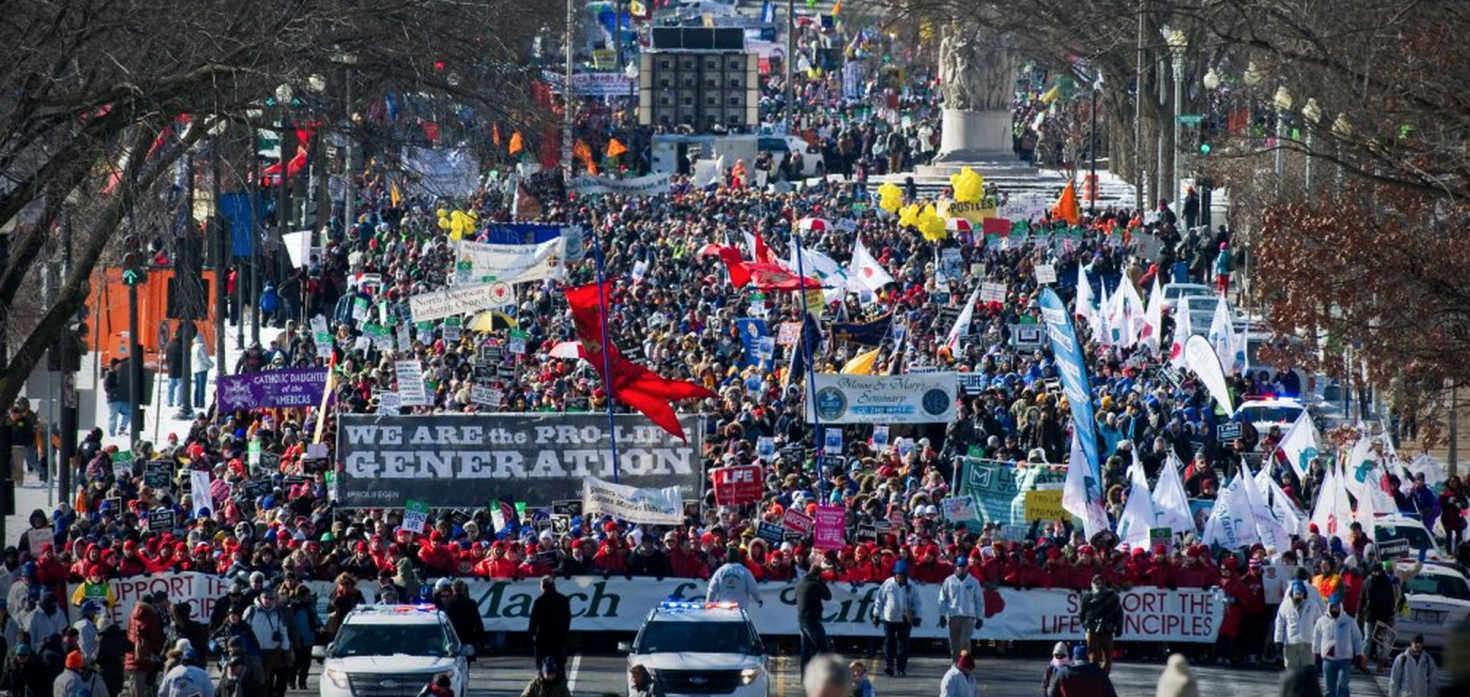
Members of the pro-life movement attend the 2017 March for Life in Washington D.C.
HONOLULU, HAWAII—Today, I was planning on starting a multi-week blog series on leadership, but an interesting week in American and global politics changed my mind.
As most of you know, last week was President Trump’s first week in office as President of the United States. Some people praised Trump’s flurry of activity as he signed numerous executive orders, setting into motion many of his major campaign promises. Others criticized (and even demonized) the new president as he began to do many of the things they feared he would do.
My emotions were mixed on Trump’s first week.
Support for the Pro-Life Movement
On Monday, January 23, I was pleasantly surprised that one of his very first executive orders was the reinstatement of a pro-life policy, originally put in place by President Reagan, that bars US funding from global health NGOs that offer abortion services. Whether these actions came from sincere pro-life convictions or were a nod to his evangelical voters is unclear. But either way, I am hopeful that more policies like this will be signed into law under a Trump administration.
On Friday, January 27, we received more hopeful news from the White House. President Trump tweeted his support for the March for Life, a nod to thousands of pro-life advocates marching in Washington D.C. to advocate for the lives of the unborn.
The Immigration Ban
However, on the same day that Trump tweeted his support for the March for Life, he also signed an executive order on immigration that indefinitely banned Syrian refugees from coming to the United States and put a 120-day suspension on all refugee resettlement. In addition, the executive order put a 90-day suspension for any citizens from Iran, Iraq, Libya, Somalia, Sudan, Syria, and Yemen from entering the United States.
Serving The Least of These
While I understand that most immigration and travel bans are temporary, and while I appreciate the need for governments to properly vet incoming immigrants and refugees, I am deeply troubled by the unwillingness of many American voters (and politicians) to welcome refugees into their states and cities. Welcoming strangers and foreigners are always awkward and always risky. But this kind of hospitality is exactly what gives people on earth a glimpse of what the kingdom of Heaven is like.
In the coming years, if certain American or European governments decide that welcoming refugees is too big of a risk, I hope that Christians break from a nationalistic sentiment and advocate for the lives of refugees with the same passion they advocate for the lives of the unborn.
As Christians, our stance on the rights of the unborn and the cause of the refugee should not be shaped primarily by political or national priorities but rather on biblical and theological priorities.
Remember, when God calls us (the church) to serve the “least of these”—those who are forgotten, vulnerable, or who are victims of great injustice and oppression—it applies just as much to the Syrian refugee as it does to an unborn American baby.
Both are made in the image of God, and both need our help right now.
Then the King will say to those on his right, ‘Come, you who are blessed by my Father, inherit the kingdom prepared for you from the foundation of the world. For I was hungry and you gave me food, I was thirsty and you gave me drink, I was a stranger and you welcomed me. . .”
(Matthew 25:34–35, ESV)
For more reading on the refugee situation, check out these blogs by Pastor Adam Mabry and by Ana Laffoon.